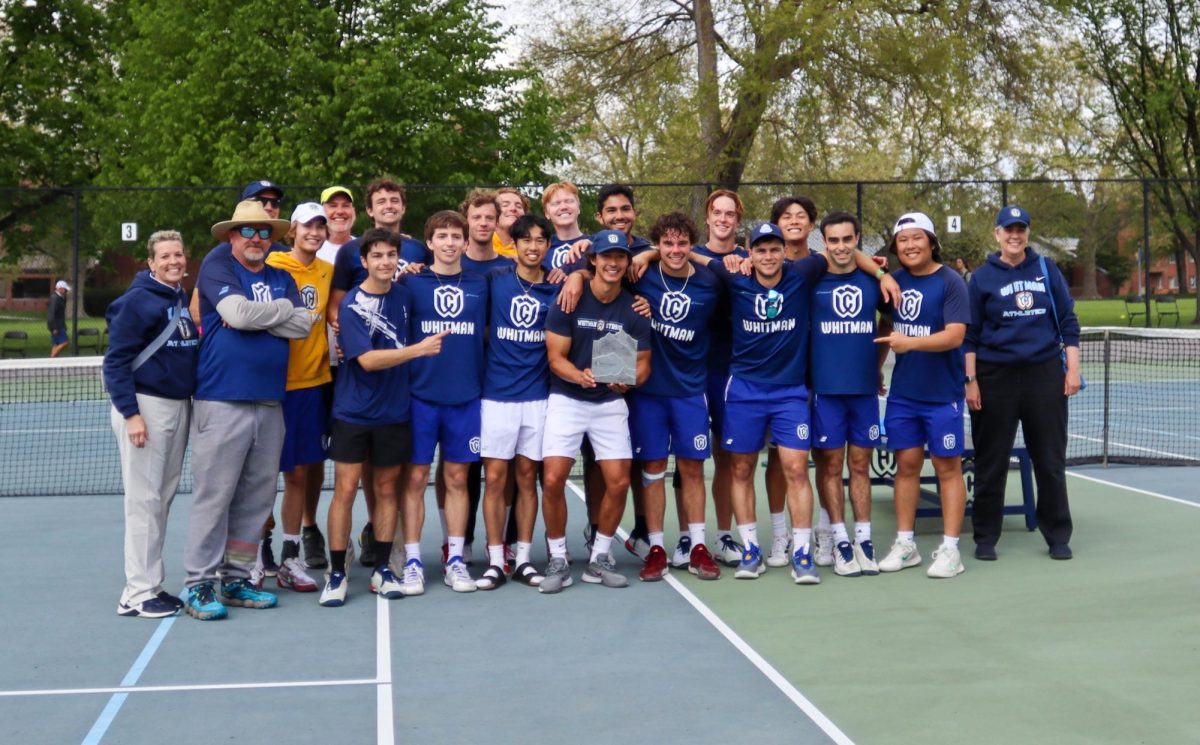With varsity athletes comprising around 20 percent of the student body, bringing topflight scholar-athletes to campus is a definite priority, according to Athletic Director Dean Snider.
Recruiting future Whitman athletes is by no means isolated to athletics, either. The process is a cooperative activity between varsity coaching staff, admissions and financial aid. According to Snider, the past 15 years has brought a change in mindset to athletics, recruiting and its relation to admissions and financial aid.
“In the 90s, I don’t believe we were as a college pursuing excellence in athletics as we are now, and it reflected on admissions practices and financial aid practices. That fact made recruiting a more difficult job for coaches,” he said.
Rather than relax admissions standards for athletes, however, Whitman has provided more recruiting resources to varsity programs, enabling them to identify talented athletes who can also succeed in a rigorous academic environment. Using institutional monies and contributions made by W Club supporters, one emphasis has been on developing the corps of assistant coaches, a key group in the recruitment process.
“We have been increasing our pool of assistant coaches, and where we don’t have full-time assistant coaches we have added monies for those assistants to work more hours,” Snider said.
Creativity and use of technology also play a role in Whitman recruiting strategies. In addition to attending high school tournaments and performing traditional scouting, Whitman coaches have created blogs, youtube highlight reels and guided video tours of athletic facilities to entice interested athletes.
Available to all varsity programs, a new Whitman recruiting practice has also allowed coaches to fly in top recruits for campus visits. Started three years ago, the program ramped up fly-in visits last year: and saw dividends. Last spring, then first-year baseball coach Jared Holowaty flew in five key recruits. This fall, all five are here at Whitman, joining 12 other first-year baseball recruits. According to Holowaty, resources like the fly-in program have been critical in rebuilding a program that went 6-50 in two seasons between 2006 and 2008, and had dwindled to 12 rostered players at the end of last year.
First-year Aaron Cohen, who was recruited while at Juneau-Douglas High School in Juneau, Ala., says that a fly-in visit last spring made it clear Whitman was the right choice.
“The coach had offered to fly me down and pay for everything, and I didn’t really have anything to lose. I had a really fun time, went to a baseball game and kind of fell in love with the place. If it wasn’t for that program, I wouldn’t be here,” he said.
Coach Holowaty, too, cites efforts like the fly-in program as key to restoring Whitman’s baseball team.
“It’s nice to be wanted. And that’s a major aspect of [the fly-in] program. ‘Wow, Whitman wants me this bad that they are going to fly me in,'” Holowaty said. “We are competing with some very good baseball schools and this is just one piece of the puzzle in competing with those schools.”
According to Holowaty, Whitman’s remote location and elite academic profile had given it a reputation as a school without a draw for talented athletes. Holowaty, though, turned Whitman’s supposed weaknesses into draws for interested students. Having the highest academic reputation in the NWC, he says, means that often he isn’t vying against in-conference schools for recruits.
“I look at it this way–we have a distinct advantage because we don’t have to recruit against the schools in our conference. It gives us an advantage, a niche. You can always flip [academic rigor] into a positive. I don’t want to compromise the quality of education here. These are outstanding students, but also very dedicated to baseball,” Holowaty said.
Whitman athletic teams that recruit widely in the United States and abroad also support institutional goals such as improving geographic, ethnic, and socio-economic diversity, according to Snider.
“It’s a great opportunity to work collaboratively with admissions to create a great incoming class each year,” he said.



